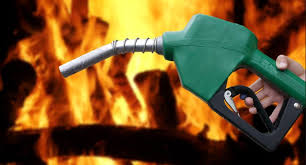This week I asked everyone to regroup on some basic classroom management. It's the time of year when educators are tired and students get restless. That's usually a recipe for problems that might have been avoidable earlier in the year. Small fires in your classroom can turn huge if they are not managed, but how you manage them also matters. There are two ways to handle a fire: you can throw water on it and put it out or you can throw gas on it and watch it explode only to burn itself out. It's not a complicated problem, managing student issues is all in how you choose to put the fire out.
So why does student management always seem more complicated than it has to be? We focus our attention on why students don't do what they should do, or how they make bad choices or react poorly in a given situation. Our attention is on them...the fire. Unfortunately, I think fires (metaphorically) are always going to be a part of education. It's almost like asking, "Why is fire hot?" We teach young people how to govern themselves just as much as we teach curriculum. And I don't know about you, but I certainly caused a few fires myself when I was younger. It's a part of growing up that isn't avoided by most children. Luckily, I had some good people around me that knew how to throw water on my fires. They focused on how to diffuse the situation instead of focusing on why I did what I had done. They took the time to teach me instead of being frustrated by me. But what if they had thrown gas instead? The cost of escalating a bad situation with a student is high. It costs us our ability to connect with the student. It breaks trust. It hinders our ability to teach. While the behavior may 100% be the student's fault, but the price of throwing gas is too high.
As Spring nears, outside warms up, and our patience thins, please take a second to consider how to make student management simple. Please search for ways to throw water on the small fires. Remember that we are here to teach and lead. And even when your last nerve is tested, consider that the price of gas is still probably too high to pay.

No comments:
Post a Comment